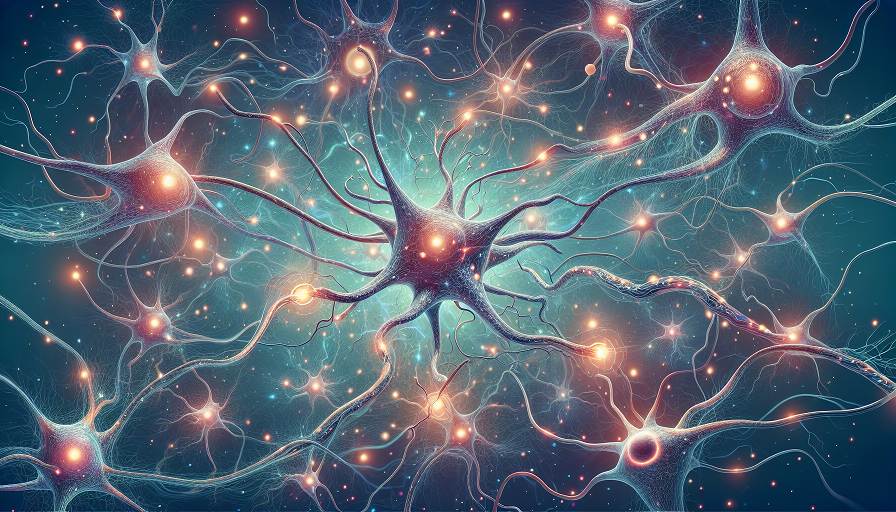
Picking up a novel might feel like an escape, but it’s actually a mental workout in disguise. Fiction invites you into worlds beyond your own, letting you walk in someone else’s shoes and experience their thoughts and emotions. While the story entertains, your brain is building critical skills like empathy and understanding.
Contents
The Neuroscience of Reading Fiction
Reading fiction isn’t just about the story—it’s a full-brain experience. When you dive into a novel, your brain activates regions involved in language, imagination, and emotional processing, creating a rich tapestry of mental activity.
Simulating Experiences
When you read about a character walking through a forest, your brain’s sensory cortex lights up, as if you’re experiencing it yourself. This simulation strengthens your ability to imagine and understand others’ perspectives.
Activating the Default Mode Network
The default mode network (DMN) of your brain, which is active during daydreaming and self-reflection, engages while reading fiction. This network plays a critical role in empathy and understanding others’ mental states.
The Role of Mirror Neurons
Mirror neurons fire when you observe or imagine someone’s actions or emotions. Reading about a character’s struggles activates these neurons, making you feel their joy, pain, or triumph as if it were your own.
A Real-World Example
Consider reading a book like To Kill a Mockingbird. Experiencing the world through Scout’s eyes not only deepens your understanding of her struggles but also broadens your perspective on social justice.
How Fiction Enhances Empathy
Empathy—the ability to understand and share another person’s feelings—is like a muscle that grows stronger with use. Reading fiction gives this muscle a thorough workout.
Walking in Someone Else’s Shoes
Fiction places you in the minds of characters from different backgrounds and cultures, allowing you to see the world through their eyes. This exposure broadens your emotional range and understanding.
Exploring Complex Emotions
Characters in novels often face morally ambiguous situations that challenge your emotional responses. Engaging with these scenarios helps you navigate real-life emotions with greater nuance.
Building Compassion
By empathizing with fictional characters, you practice compassion, making it easier to connect with people in your own life who might be going through tough times.
Practical Application
Think of a time you read a novel about grief or loss. Did it help you better understand and comfort a friend dealing with similar challenges? That’s empathy in action.
Fiction’s Role in Enhancing Social Understanding
Social understanding—your ability to navigate relationships and societal norms—improves significantly when you read fiction. Here’s why.
Decoding Social Cues
Fiction often describes nuanced social interactions, teaching you how to read between the lines in real life. These lessons improve your ability to interpret body language and tone.
Understanding Diverse Perspectives
Through fiction, you encounter characters with different beliefs, cultures, and life experiences. This exposure builds cultural competence and reduces unconscious biases.
Improving Conflict Resolution
Stories often revolve around conflicts and their resolutions. Observing how characters handle disputes provides insights into managing your own conflicts more effectively.
Example
Reading a book like The Kite Runner helps you understand the complexities of friendship, loyalty, and redemption, enriching your social interactions.
How Fiction Boosts Emotional Intelligence
Emotional intelligence—the ability to recognize, understand, and manage emotions—is a skill that fiction enhances with every page.
Recognizing Emotional States
Fiction trains you to pick up on subtle emotional cues, both in the text and in real life. This skill makes you more attuned to the feelings of those around you.
Managing Personal Emotions
Encountering emotionally charged scenarios in fiction helps you process your own emotions, building resilience and self-awareness.
Strengthening Relationships
Understanding and managing emotions improves your ability to build and maintain healthy relationships, both personally and professionally.
Anecdote
A parent reading The Giving Tree with their child might find it easier to discuss themes of generosity and gratitude, strengthening their emotional connection.
Fiction and Cognitive Flexibility
Cognitive flexibility—the ability to adapt to new information and perspectives—is another cognitive skill honed by reading fiction.
Adapting to New Narratives
Fiction often presents twists and turns that challenge your expectations. Adjusting to these shifts trains your brain to be more adaptable in real-world scenarios.
Encouraging Creative Thinking
Immersing yourself in imaginative worlds inspires creativity, helping you approach problems from fresh angles and think outside the box.
Fostering Open-Mindedness
Stories with unconventional characters or settings challenge preconceived notions, fostering an open-minded approach to unfamiliar ideas.
Example
A novel like 1984 pushes you to question authority and think critically about societal structures, sharpening your cognitive flexibility.
Practical Tips for Maximizing the Benefits of Reading Fiction
To get the most out of your fiction reading, it helps to approach it with intention. Here are some strategies to enhance your experience.
Choose Diverse Genres
Expand your horizons by exploring genres outside your comfort zone, from historical fiction to science fiction. Each offers unique cognitive benefits.
Engage Actively
Reflect on the characters’ motivations and decisions as you read. Discussing the story with others deepens your understanding and empathy.
Make It a Habit
Set aside regular time for reading, even if it’s just 15 minutes a day. Consistency amplifies the benefits.
Apply What You Learn
Use insights from fiction to improve your real-life interactions. For example, apply conflict-resolution strategies from your favorite characters to your own disputes.
Scientific Evidence Supporting Fiction’s Benefits
The cognitive and emotional benefits of reading fiction are backed by solid research, highlighting its transformative impact on the brain.
Empathy and Theory of Mind
Studies in Science reveal that reading literary fiction improves theory of mind—the ability to attribute mental states to others—by enhancing empathy.
Social Understanding
Research in The Journal of Research in Personality shows that regular fiction readers score higher on tests measuring social understanding and emotional intelligence.
Neuroplasticity Findings
Brain imaging studies demonstrate increased activity in regions associated with language processing and emotional engagement after reading fiction.
Case Study
A group of participants who read fiction daily for six weeks showed measurable improvements in emotional recognition and social cognition compared to a control group.

